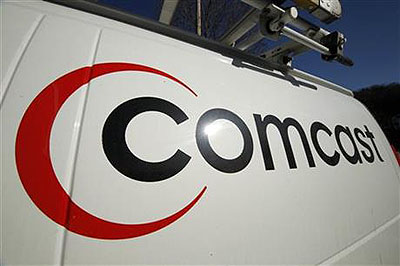 Via Matt Yglesias, I see that Matthew Klein has finally written a short post that explains what’s really behind the Comcast-Time Warner merger:
Via Matt Yglesias, I see that Matthew Klein has finally written a short post that explains what’s really behind the Comcast-Time Warner merger:
To understand what the deal is really about, remember that pay-TV distributors are at the mercy of the networks that sell programming. According to Bloomberg Industries analyst Paul Sweeney, about half your cable bill goes to companies such as Viacom Inc. and Walt Disney Co. The networks consistently raise prices about 10 percent a year on average, irrespective of the state of the economy. By contrast, the typical cable bill only goes up by about 5 percent a year. Cable companies have eaten the difference by lowering their margins and cutting costs elsewhere, but there are limits to both processes.
This margin squeeze is why Time Warner Inc. spun off its cable business, why Comcast acquired NBC Universal, and why Internet-based subscription services offered by Netflix Inc. and Amazon.com Inc. have invested in original programming as a defense against the rising cost of licensing content. It also explains why Time Warner Cable had to cave to demands for higher fees from CBS Corp. a few months ago. Merging the two biggest cable operators might give them more bargaining power with the networks, especially if it encourages DIRECTV and Dish Network Corp. to consolidate the satellite business.
In the same way that the health care business can largely be understood as a competition between suppliers (hospitals, pharma, etc.) and consumers (insurance companies), the video entertainment business should largely be understood as a competition between content producers (Disney, Viacom, etc.) and content distributors (Comcast, Verizon, etc.). Ideally, you want competition everywhere. That is, you want enough producers that they compete with each other; enough distributors that they compete with each other; and enough balance between the two that neither producers nor distributors have the whip hand against the other.
So the question we should be asking about the Comcast-Time Warner merger is simple: Do content distributors need more clout? Klein suggests they do: they’re at the mercy of rapacious networks who keep raising carriage fees and they don’t have the market power to fight back. The merger will help that.
That may be, but I’d like to hear more about this. Networks and cable companies fight constantly, as you know if you’ve ever seen dueling ads about why your favorite shows will soon be off the air in your area. The networks run ads telling people that if they don’t want to miss the next episode of CSI, they better call their cable company and tell them to knock off the gamesmanship. The cable companies run ads insisting that the network is jacking up rates unconscionably and everyone should besiege them with demands that they be more reasonable. Usually this continues until about one minute before the current contract runs out, at which point both sides make a deal. Occasionally it goes longer, and certain shows really are blacked out for a while.
If you’ve ever had trouble figuring out which side is really at fault in one of these battles of the titans, well, that’s the problem. Two mega-corporations are duking it out, and the rest of us are just caught in the middle. From a consumer point of view, part of the problem is that we’ve all been trained to hate the cable companies who send us outrageous bills every month and love the content producers who make all the shows we love. But don’t fall for that: it’s just an artifact of which business happens to be customer facing. The truth is that both sides are big, soulless corporations who have no claim on your emotions. That said, I’d normally take Klein’s side of this except for one thing: would a bigger Comcast really have more negotiating clout than they do now? I guess that’s possible, but they have a helluva lot of clout already. No network can afford to be shut out of Comcast’s market for long. So it’s not clear to me that a bigger Comcast would really do much for the rest of us.
In any case, that’s how to think of this stuff. Practically every big battle you see in the media arena is, one way or another, a battle between gigantic producers on the one hand and gigantic distributors on the other. That’s what net neutrality is all about. That’s what copyright battles are all about. That’s what broadband fights are all about. And that’s what this merger is all about. We are all just pawns watching the fireworks.


















